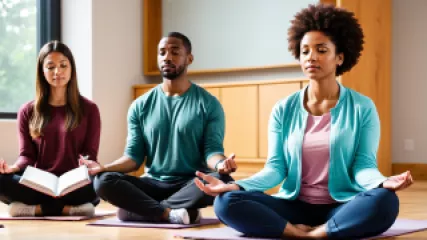Understanding Trauma: A Step-by-Step Guide to Mental Health Support
Introduction
Trauma is an experience that can have a profound impact on a person's mental health and overall well-being. It can arise from various sources, such as accidents, abuse, violence, or natural disasters, and it often leaves individuals feeling overwhelmed and disconnected from themselves and the world around them. Understanding trauma and its effects is crucial for providing effective mental health support to those who have experienced it.
In this comprehensive guide, we will take you through a step-by-step process to help you understand trauma better and provide the necessary tools and techniques for mental health support. From recognizing the signs of trauma to exploring trauma healing techniques and digital mental health solutions, this guide aims to equip you with the knowledge and resources needed to make a positive impact in the lives of trauma survivors.
Section 1: Understanding Trauma
What is Trauma?
Trauma is an emotional response to a distressing event or series of events that overwhelms an individual's ability to cope. It can be categorized into two types: acute trauma, which results from a single event, and complex trauma, which arises from repeated or prolonged exposure to traumatic experiences. Trauma can affect people from all walks of life, regardless of age, gender, or background.
The Effects of Trauma
Trauma has far-reaching consequences that extend beyond the initial event. It can cause physical, emotional, and psychological symptoms, impacting every aspect of a person's life. Common effects of trauma include anxiety, depression, flashbacks, nightmares, hypervigilance, and difficulty forming and maintaining relationships. Understanding these effects is crucial for providing appropriate mental health support.
Recognizing Trauma
Recognizing trauma in oneself or others is an essential step towards seeking or providing mental health support. Some common signs of trauma may include persistent feelings of fear or sadness, avoiding reminders of the traumatic event, changes in sleep or appetite patterns, and difficulty concentrating or making decisions. It's important to approach this recognition with sensitivity and empathy.
Section 2: Mental Health Support for Trauma
Building a Supportive Environment
A supportive environment is crucial for individuals who have experienced trauma. Creating a safe and non-judgmental space allows survivors to share their experiences and emotions without fear of stigma or further harm. Active listening, empathy, and validation are key components of building this supportive environment.
The Role of Mental Health Coaching
Mental health coaching can play a vital role in trauma recovery by providing personalized guidance and support. Coaches can help individuals develop coping strategies, set goals, and navigate the challenges that arise during the healing process. This collaborative approach empowers survivors to take control of their mental health journey.
Online Therapy for Anxiety and Trauma
The digital age has brought forth new avenues for mental health support, including online therapy platforms. These platforms offer accessible and convenient options for individuals seeking therapy for anxiety and trauma. Online therapy provides a safe and confidential space for survivors to connect with licensed therapists and access evidence-based interventions.
Self-Care Practices for Trauma
Self-care plays a crucial role in trauma recovery. Encouraging individuals to prioritize their well-being and engage in activities that promote relaxation, mindfulness, and self-compassion can contribute to their healing journey. Self-care practices such as exercise, journaling, meditation, and creative expression offer valuable tools for managing the symptoms of trauma.
Section 3: Trauma Healing Techniques
Cognitive-Behavioral Therapy (CBT)
Cognitive-Behavioral Therapy is a widely recognized therapeutic approach used in trauma healing. CBT focuses on identifying and challenging negative thought patterns and behaviors that contribute to distress. By working with a therapist, individuals can develop healthier coping mechanisms and reframe their beliefs about themselves and the world.
Eye Movement Desensitization and Reprocessing (EMDR)
EMDR is a specialized therapy technique designed to alleviate the distress associated with traumatic memories. This evidence-based approach involves bilateral stimulation, such as eye movements or taps, while focusing on specific memories. EMDR helps individuals process traumatic experiences and rewire the associated negative emotions.
Mindfulness-Based Practices
Mindfulness-based practices, such as mindfulness meditation and body scans, have shown promise in trauma healing. These practices cultivate present-moment awareness and acceptance, allowing individuals to observe their thoughts and emotions without judgment. Mindfulness can help survivors develop resilience and regulate their emotional responses.
Conclusion
Understanding trauma is the first step towards providing effective mental health support. By recognizing the signs of trauma, building a supportive environment, and exploring trauma healing techniques, you can make a positive impact in the lives of trauma survivors. Additionally, digital mental health solutions, such as online therapy platforms, offer accessible and convenient options for individuals seeking support. Remember, each person's healing journey is unique, so approach mental health support with empathy, compassion, and a commitment to ongoing learning.






